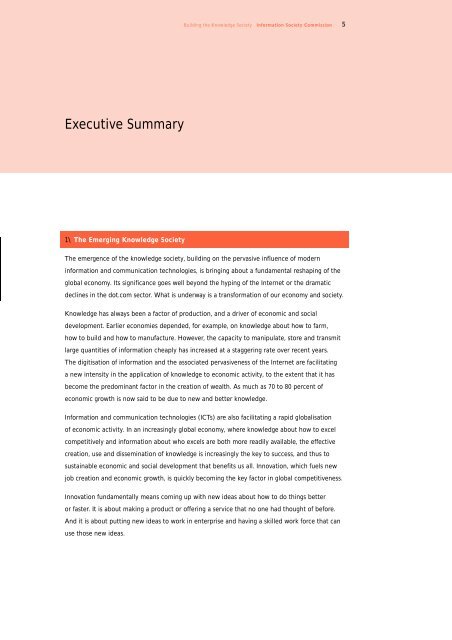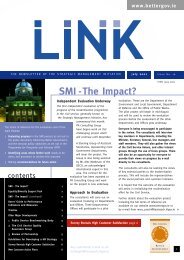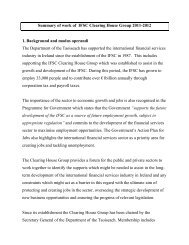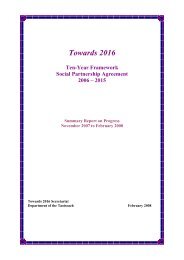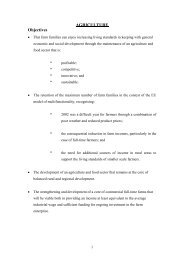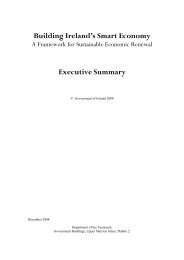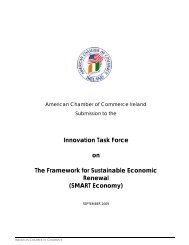Building the Knowledge Society - Department of Communications ...
Building the Knowledge Society - Department of Communications ...
Building the Knowledge Society - Department of Communications ...
Create successful ePaper yourself
Turn your PDF publications into a flip-book with our unique Google optimized e-Paper software.
<strong>Building</strong> <strong>the</strong> <strong>Knowledge</strong> <strong>Society</strong> Information <strong>Society</strong> Commission 5Executive Summary1\ The Emerging <strong>Knowledge</strong> <strong>Society</strong>The emergence <strong>of</strong> <strong>the</strong> knowledge society, building on <strong>the</strong> pervasive influence <strong>of</strong> moderninformation and communication technologies, is bringing about a fundamental reshaping <strong>of</strong> <strong>the</strong>global economy. Its significance goes well beyond <strong>the</strong> hyping <strong>of</strong> <strong>the</strong> Internet or <strong>the</strong> dramaticdeclines in <strong>the</strong> dot.com sector. What is underway is a transformation <strong>of</strong> our economy and society.<strong>Knowledge</strong> has always been a factor <strong>of</strong> production, and a driver <strong>of</strong> economic and socialdevelopment. Earlier economies depended, for example, on knowledge about how to farm,how to build and how to manufacture. However, <strong>the</strong> capacity to manipulate, store and transmitlarge quantities <strong>of</strong> information cheaply has increased at a staggering rate over recent years.The digitisation <strong>of</strong> information and <strong>the</strong> associated pervasiveness <strong>of</strong> <strong>the</strong> Internet are facilitatinga new intensity in <strong>the</strong> application <strong>of</strong> knowledge to economic activity, to <strong>the</strong> extent that it hasbecome <strong>the</strong> predominant factor in <strong>the</strong> creation <strong>of</strong> wealth. As much as 70 to 80 percent <strong>of</strong>economic growth is now said to be due to new and better knowledge.Information and communication technologies (ICTs) are also facilitating a rapid globalisation<strong>of</strong> economic activity. In an increasingly global economy, where knowledge about how to excelcompetitively and information about who excels are both more readily available, <strong>the</strong> effectivecreation, use and dissemination <strong>of</strong> knowledge is increasingly <strong>the</strong> key to success, and thus tosustainable economic and social development that benefits us all. Innovation, which fuels newjob creation and economic growth, is quickly becoming <strong>the</strong> key factor in global competitiveness.Innovation fundamentally means coming up with new ideas about how to do things betteror faster. It is about making a product or <strong>of</strong>fering a service that no one had thought <strong>of</strong> before.And it is about putting new ideas to work in enterprise and having a skilled work force that canuse those new ideas.


